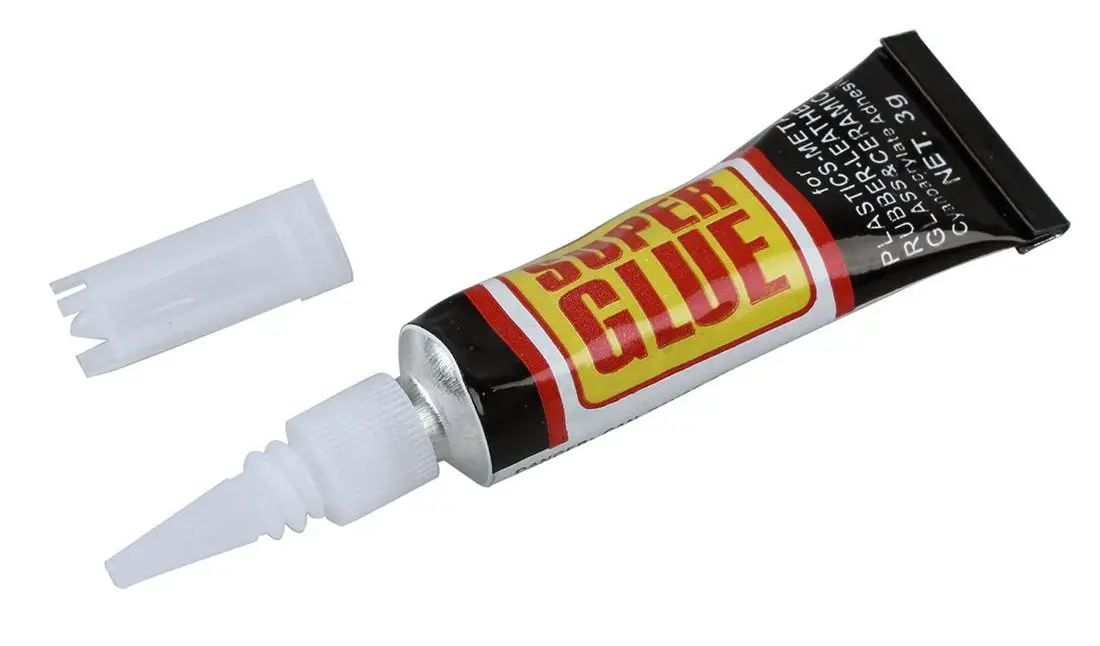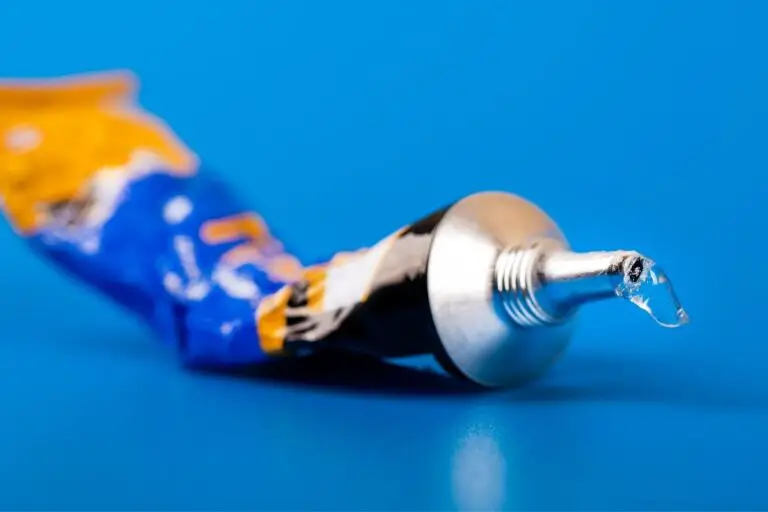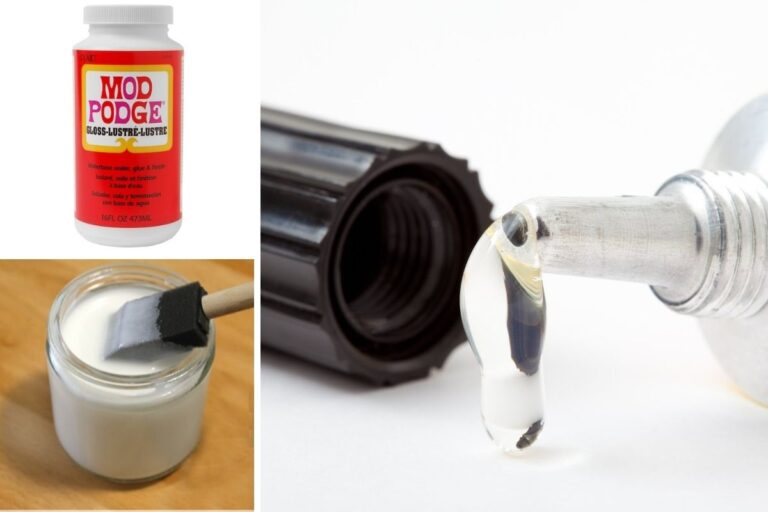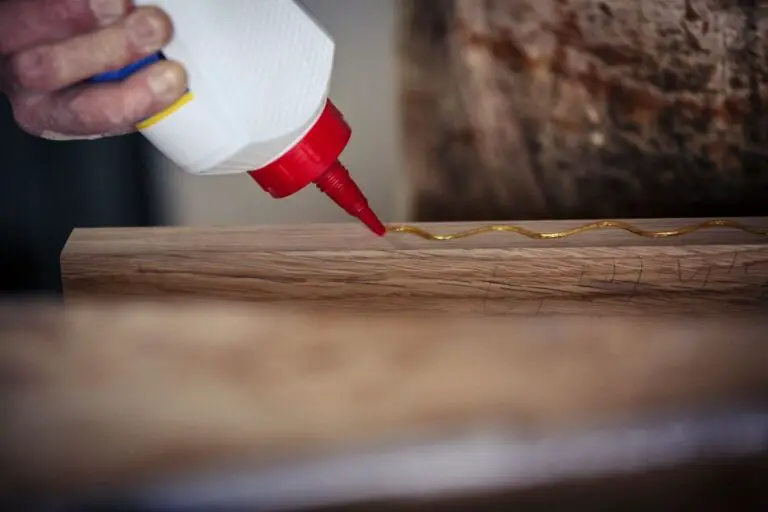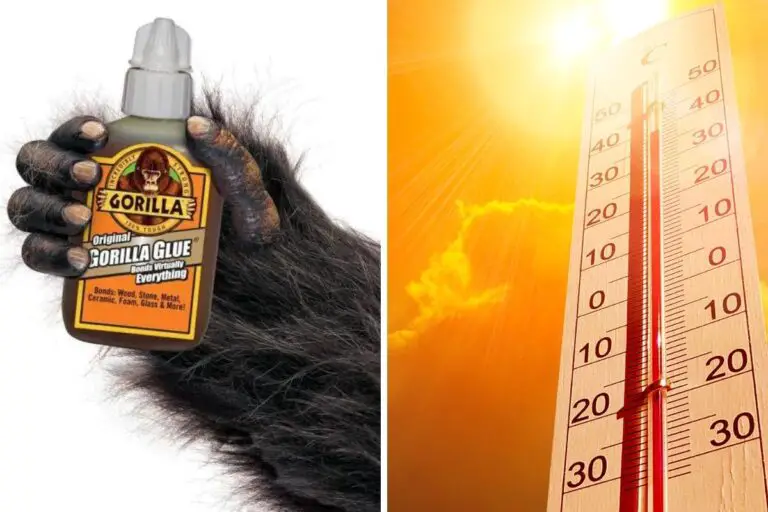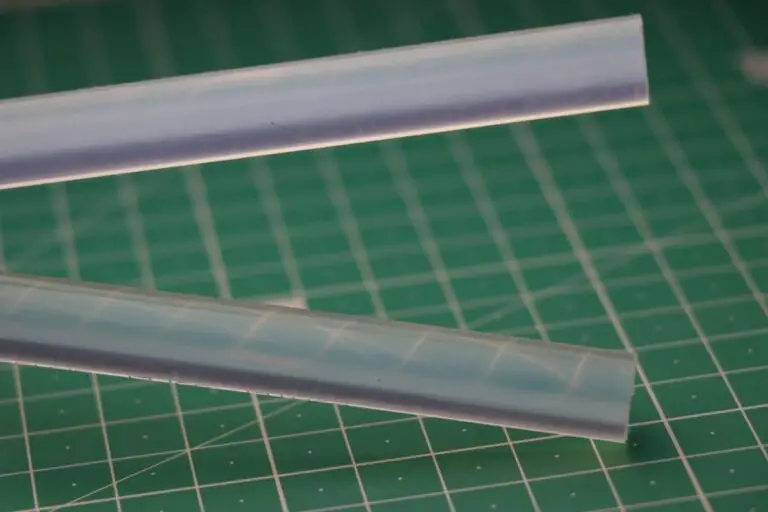What Does Superglue Taste Like? Is It Poisonous?
You might be tempted to eat glue because you’re curious what it will taste like. Some kinds of glue are completely non-toxic, so it will okay to taste very small amounts of them although the taste won’t be very favorable.
However, with strong adhesives like super glue, it might not be a good idea to get a taste as they can be more harmful.
So, what does superglue taste like? Superglue has a mild taste that some might describe as wax-like. Although superglue does not necessarily taste bad, it’s generally advised not to eat it in any amount. That is because super glue will bond quickly when exposed to the moisture in your mouth and it will get stuck to your teeth. If you swallow super glue, it might cause more severe health problems.
Continue reading to learn more about the properties of super glue and what makes it unsafe to eat or inhale.
Contents
What Is Superglue Made of?

Super Glue is mainly made of a chemical compound called cyanoacrylate. This chemical allows the glue to bond quickly and strongly with various kinds of surfaces such as wood, metal, ceramic, plastic, foam, stone, and glass.
This kind of glue can be different from other adhesives as its main component, which is cyanoacrylate, is an acrylic monomer that hardens into a plastic-like form when the glue dries. This ensures that the bond between the glue and the surface it’s applied on will last a long time.
Another reason it’s different from other adhesives is that it requires the presence of moisture to bond with the surface it’s applied on. So, if you try to use the glue on a completely dry surface, it will not be very effective.
Is Super Glue Toxic?
Super Glue is considered a toxic adhesive because it contains various harmful chemicals such as cyanoacrylate, toluene, xylene ethanol, N-hexane, and light aliphatic naphtha.
These chemicals can lead to serious health issues if they’re inhaled or ingested, whether it’s on purpose or by accident. They can also cause some irritation or infection if they come in contact with your bare skin or eyes.
Is It Ok to Eat Super Glue?
Superglue is not ok to eat as it contains chemical substances that can cause harm if they come in contact with the inside of your mouth. The degree of the harm caused will mainly depend on the amount of glue you ingested and whether you swallowed it or not.
What to Do If You Get Super Glue in On Your Teeth?

Once the superglue gets inside your mouth, it will quickly start to bond and harden due to the presence of moisture.
If you only eat a small amount of glue, it will likely get stuck to your teeth or other parts inside of your mouth cavity and you won’t get the chance to swallow it.
To avoid getting the glue on your teeth, you need to spit it out immediately before it starts to bond and harden. It’s not a good idea to rinse your mouth with water as this will only speed up the bonding process.
If the glue has already bonded and stuck to your teeth, try eating peanut butter or drinking some vinegar to soften the bond of the glue before spitting it out. If you can’t soften the glue, it’s highly recommended to seek professional dental help.
Try not your best not swallow any amount of glue when it’s in your mouth to prevent causing more harm.
What to Do If You Swallow Super Glue?
If You eat a large amount of glue, you’re more likely to swallow by accident which means the glue will start to bond and harden while it’s in your digestive tract.
This can lead to having glue stuck to the walls of your intestines together causing a blockage which will lead to severe abdominal pain, nausea and vomiting.
If you accidentally swallow super glue, you won’t be able to remove it so it’s highly recommended to seek professional medical help as soon as possible.
Is OK to Inhale Super Glue?

It is not ok to inhale super glue as the fumes can cause various health issues including super glue poisoning.
Even though you might get a temporary sense of euphoria from inhaling glue, it’s not worth the damage it can do to your health.
What Are the Symptoms of Super Glue Poisoning?
While super glue poisoning is not deadly, it can cause short-term and long-term damage to your health. The severity of the symptoms caused by inhaling glue can vary depending on how long you’ve been exposed to the smell.
Short term damage includes symptoms like frequent headaches, dizziness, nausea, and vomiting
Long-term damage, on the other hand, is more severe as it includes weakening the immune system and lung damage that leads to respiratory failure. In some cases, it can cause permanent brain damage that’s accompanied by intense hallucinations, seizures, and other neurological problems.
Related Questions
Does Saliva Dissolve Super Glue?
Saliva does not dissolve super glue because it contains cyanoacrylate that bonds strongly in the presence of moisture. If you eat a small amount of super glue, it will start solidifying once it touches the saliva inside your mouth which can cause it to get stuck to your teeth. You might also swallow it causing it to solidify in your digestive tract leading to a blockage.
Does Rubbing Alcohol Dissolve Super Glue?
Rubbing alcohol can dissolve super glue and it’s often used to remove dried glue from different hard surfaces. It’s recommended to pour some of the alcohol on a cloth then place it on the dried glue spot for about 10 minutes. This will help soften the glue and weaken its bond making it much easier to wipe or scrape off.
How to Avoid Inhaling Super Glue?
You can avoid inhaling super glue by working in a well-ventilated area. To improve ventilation in a room, it’s recommended to open all the windows to allow in fresh air and place one or two fans to increase air circulation. You can also use an air purifier with a carbon filter to absorb the harmful fumes that super glue emits and reduce the severity of its smell.
Helpful Resources
If you like this article, share it!

